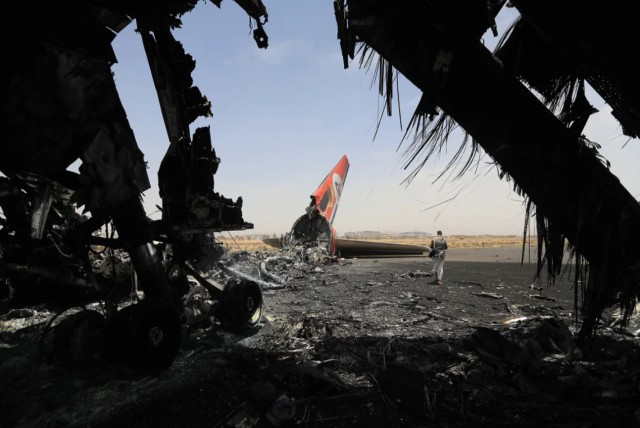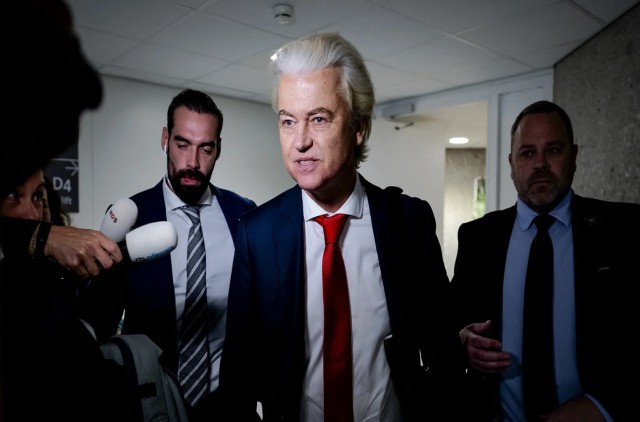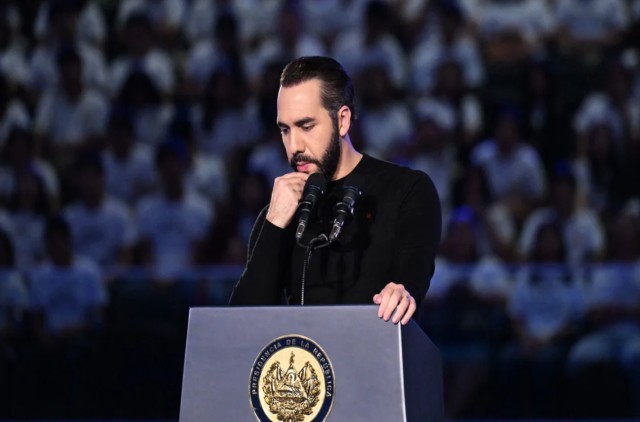
A Houthi rebel walks next to a destroyed plane at the Sanaa International Airport on Wednesday, a day after Israel's military warplanes struck Yemen's rebel-held capital Sanaa. (Getty Images)
Israel has pledged to stand alone in defending itself against Yemen’s Houthi rebels. The announcement follows a surprise truce between the United States and the Iran-backed militia.
Israeli Prime Minister Benjamin Netanyahu declared on Wednesday, “Israel will defend itself by itself.” His message came shortly after the US struck a deal with the Houthis to halt mutual hostilities.
US-Houthi Truce Catches Israel Off Guard
The agreement, led by former President Donald Trump, came without any prior consultation with Israel. According to an Israeli official, the move blindsided Tel Aviv. This development followed Israeli airstrikes on Yemen, launched in retaliation for a Houthi drone strike on Ben Gurion Airport.
Trump’s deal offered to stop US military operations against the Houthis. In return, the Houthis would refrain from attacking American assets in the region.
However, the group made it clear—Israel remains a target. Senior Houthi leader Mohammed Ali al-Houthi celebrated the deal, claiming it separated US support from what he called a “temporary entity,” referring to Israel.
Netanyahu: With or Without Allies
Netanyahu made Israel’s stance unmistakably clear. In a social media post, he said, “If others join us—our American friends—all the better. If they don’t, we will still defend ourselves on our own.”
Earlier this week, Israel carried out two days of strikes on Yemen without American support. This marked a shift from previous joint operations.
Defense Minister Israel Katz echoed Netanyahu’s sentiment. He stated, “Israel must be able to defend itself by itself against any threat and any enemy.”
Trump Applauds Houthis’ “Bravery”
In a White House ceremony, Trump spoke about the ceasefire with the Houthis. He described them as resilient and brave. “It was amazing what they took,” he remarked, referencing the group’s endurance under US military pressure.
Trump said the US would “honor their commitment” not to strike American warships or commercial vessels. He described the outcome as “good” and maintained that the agreement served American interests.
Israel’s Concerns Ignored, Again
Former US Middle East envoy Dennis Ross pointed out a recurring pattern. He noted that the White House has repeatedly overlooked Israeli concerns during key diplomatic moves.
Ross cited previous instances where Netanyahu was left uninformed. This included US talks with Hamas and Trump’s announcement of new nuclear discussions with Iran. According to Ross, “The Trump Administration thinks about America’s interests.”
Israel’s exclusion from the recent deal further reflects this trend. Whether the Houthis continue launching missiles at Israel remains to be seen.
Silence in Tel Aviv, Focus on Security
Despite the diplomatic snub, Israeli officials have avoided public criticism of Trump’s move. Netanyahu, a long-time supporter of Trump, remained measured in his response.
Other members of Israel’s leadership also held back. Instead, they emphasized the country’s readiness to act independently.
The Houthis were originally listed as a Foreign Terrorist Organization by Trump in the final days of his first term. President Biden later revoked the designation in 2021. However, Trump reinstated the label in January.
As tensions persist in the region, Israel appears more determined than ever to take defense matters into its own hands. Will the Houthis back down—or will Israel face another front, alone?















